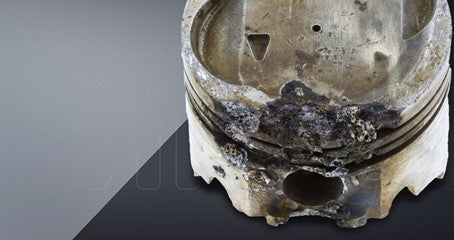The important facts about LSPI

LSPI translates to low speed pre-ignition. This problem restricts OEMS’ usage of engine downsizing. Read the facts below.
LSPI – what it means
LSPI or Low Speed Pre-Ignition happens when combustion occurs and can cause considerable damage. Explicitly, the combination of fuel and air fires prematurely, causing extreme cylindrical pressure.
LSPI can often translate to a noisy engine. However, that’s only part of the problem because LSPI can result in significant engine damage, thus rendering it among the most severe problems engine technology faces today.
Why does LSPI occur?
Here is some insight: in meeting worldwide desires for more efficient fuel consumption and fewer emissions, vehicle makers have produced smaller, turbocharged gasoline engines, also identified as supercharged. Able to operate at reduced speeds and high torque, these engines’ superior efficiency and higher power density equal the standards set by the market and also legislation introduced in several countries.
Ford and GM have introduced engines with fewer cylinders and smaller displacement, e.g. 1.0 L cylinder capacity. These are said to be on the same lines, output-wise as their 1.6 L four-cylinder engines, while their fuel economy is 20% improved as well as fewer CO2 emissions. As an indicator of their progress, these engines have a phenomenal annual production rate.
There have, however, been problems with these engines. Named LSPI or low-speed pre-ignition, a premature combustion before the usual spark-derived combustion has been found to develop, audible as a thumping sound which can be heard by the driver.
LSPI develops in smaller engines; this is a known fact. However, the precise cause of this has yet to be determined. According to one theory, a droplet of oil joins the combustion chamber via a gap between the piston and the cylinder wall. From there, it interacts with fuel and combusts. Alternatively, some assume that deposits are the cause of the ignition. This has been proved in both instances, not exclusive to either.
What effects does LSPI have?
It is not just the noise that’s the problem; major engine damage can result from LSPI and very quickly. When LSPI occurs, pistons and connecting rods are in upward movement and are especially liable to damage. Piston rings can be damaged or in the worst instances broken, connecting rods can be contorted and spark plugs affected.
LSPI restricts vehicle manufacturers’ ability to run turbocharged engines at peak performance, and this is a major drawback and inhibits progress.
What can be done to solve this?
So how can LSPI be prevented? The harmful nature of LSPI and its unexpected behaviour present a challenging problem for research. There are powerful reasons to believe, however, that lubricant make-up can also take a role in containing LSPI. Groundbreaking research has been carried out by additive suppliers in this matter.
For instance: the possibilities of LSPI happening appear to be greater when using oils with higher amounts of calcium. Having stated that, LSPI does not seem to be advanced by the use of magnesium-based detergents and molybdenum mixtures, and there is, in fact, evidence of a decrease.
Resolving LSPI isn’t as easy as changing one part for another. Every part undertakes several actions, and a lubricant’s quality is affected in different ways by changing the composition.
LSPI prevention and how it will be expressed in specifications
Efforts are continuing by the lubricants industry to produce a suitable engine test that will effectively measure the make-up of lubricants on LSPI. To design state of the art lubricant technologies helping to banish LSPI, thus enabling OEMs to advance their development of fuel-saving, low-emission engines is our primary intention.
Soon to be introduced oil specifications already consist of LSPI prevention, and ILSAC GF-6 is believed to involve a Ford engine test indicating a lowering of the prospects of LSPI occurring.
Summary:
- LSPI or Low Speed Pre-Ignition occurs when combustion takes place and is harmful to the engine.
- The fact that LSPI occurs in smaller engines is well-known, although the precise nature of the problem is hard to identify.
- LSPI can be destructive for the engine apart from the considerable noise the problem produces.
- Positive signs exist that lubricant make-up can play a role in containing LSPI.
- We seek to introduce advanced lubricant technologies that can help to reduce LSPI, thus allowing OEMs to enhance their production of fuel-conscious, low-emission engines.